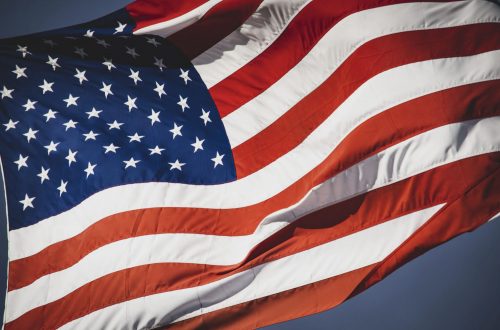Last week, I was at a meeting hosted by The Alliance Defending Freedom. There I was introduced to a Christian family who was ordered by the State of Washington to sell abortion-inducing drugs in their family-owned pharmacy (see their story above). This family and two other pharmacists believe that killing unborn children is wrong, and so they sued the state for relief.
In 2012, a federal court ruled that the law violated the free exercise clause of the first amendment and that the law was “riddled with exemptions for secular conduct, but contain no such exemptions for identical religiously-motivated conduct.”
In 2015, however, a federal appeals court overruled and said that the pharmacists and family must violate their consciences in order to do business in Washington State. The family and the pharmacists appealed their case to the Supreme Court.
This morning, the Supreme Court denied to hear their appeal. It means that the lower court ruling stands and that they cannot do business in Washington State unless they are willing to violate their religious beliefs.
Justice Samuel Alito wrote a dissent against the Supreme Court’s decision, and he was joined by Chief Justice John Roberts and Justice Clarence Thomas. You need to read this excerpt from the dissent:
“This case is an ominous sign. At issue are Washington State regulations that are likely to make a pharmacist unemployable if he or she objects on religious grounds to dispensing certain prescription medications. There are strong reasons to doubt whether the regulations were adopted for—or that they actually serve—any legitimate purpose. And there is much evidence that the impetus for the adoption of the regulations was hostility to pharmacists whose religious beliefs regarding abortion and contraception are out of step with prevailing opinion in the State. Yet the Ninth Circuit held that the regulations do not violate the First Amendment, and this Court does not deem the case worthy of our time. If this is a sign of how religious liberty claims will be treated in the years ahead, those who value religious freedom have cause for great concern. The Stormans family owns Ralph’s Thriftway, a local grocery store and pharmacy in Olympia, Washington. Devout Christians, the Stormans seek to run their business in accordance with their religious beliefs…. Ralph’s has raised more than ‘slight suspicion’ that the rules challenged here reflect antipathy toward religious beliefs that do not accord with the views of those holding the levers of government power. I would grant certiorari to ensure that Washington’s novel and concededly unnecessary burden on religious objectors does not trample on fundamental rights.” [underline mine]
The fortunes of religious liberty are waning in our country right now. The notion has been diminishing in the popular consciousness, and now the Supreme Court is declining to defend our first freedom as well. Alito is right, this is a “cause for great concern.” If the state can ignore the first amendment and coerce these Christians to violate their conscience, then the state can do anything.




17 Comments
Pingback:
David Shane
We are coming from totally different places as a people now, Denny. I have a feeling that if I got an honest reaction from some of my progressive friends to a piece of writing like Alito’s dissent, it would be something like – “you know, if I cared about religious liberty, I would think he’s saying some important stuff here – but I don’t”. And what should be a rebuttal – “but progressive friend, while your side may be in ascendancy now, don’t you want conscience protections for that day you’re in the minority again?” doesn’t work, because they don’t believe they will EVER be in the minority again, ever. That’s why Brexit was such a shock, they believe the world is evolving inevitably in accordance with their beliefs and it will never go back. Why care about minority conscience protections when you think you’re a permanent majority?
Pingback:
James Harold Thomas
The left denied the existance of the culture war until they started winning it.
Ian Shaw
We could really use Scalia right now, couldn’t we?
Ken Abbott
Unhappily, Ian, the best AS could offer is writing savage dissents, or being the fourth justice to agree to hear a case (as was needed in the Stormans case). Kennedy is now firmly ensconced in the liberal wing, which has a five-person majority.
James Harold Thomas
You gotta wonder what the liberal justices would have said if case was a pharmacist refusing to dispense a lethal dose of pentobarbitol for an execution.
Ryan Whitford
Funny how Anthony Kennedy found it necessary to accept a case to determine whether gay marriage should be mandated to be allowed in every state, even against a state’s amended constitution, but he finds it irrelevant to consider a case clearly involving religious freedom of conscience. Those that labelled him a quasi-conservative or originalist in the past were clearly dead wrong. But, with that said, if another Court of Appeals (most likely, the 6th Circuit) were to rule differently for some other couple then their hand would be forced and SCOTUS would have to make a determination.
Jefferson White
The transformation of the Supreme Court into our Supreme Revolutionary Tribunal has been a long time coming, but it is not as if anyone paying attention didn’t understand that this was the ultimate destination.
In 1776, American Christians understood Christ’s words that we were to obey Caesar to mean that we were to uphold the rule of law against the unlawful acts of king and Parliament. Today, even the most conservative Christians teach that the complete trashing of the Constitution by the Supreme Court, as exemplified in the murder of the unborn since 1973, must be obeyed by believers since it is the Supreme Court, and not the Constitution, that is Caesar.
America’s Christians long ago abandoned the rule of law under the pretense of obeying the law. America’s Christians have sown the wind. They are now to reap the whirlwind.
Sam Jenkins
@jeffersonwhite Amen!
Sandra Stewart
The two word “religious liberty” is being over used. I was taught roughly six decades ago that my right to swing my fist (I was in fights a lot, but never started them) ended at the point of some one else’s nose. You are entitled to believe what ever you wish but when it impinges on the rights of some one else who does not share that belief it is bigotry/discrimination.
Ken Abbott
There is a hierarchy of rights; not all “rights” inhabit the same plane. When “rights” conflict, one tries to determine which is the higher right.
By the way, I put it to you that the two words “bigotry” and “discrimination” are also being overused.
Johnny Mason
Whose rights are being impinged in this example? No one has a right to another’s property. No one has a right to force someone to violate their conscience. It appears the tyrant here is the government and people, like you, who wish to harm these shop owners.
Sam Jenkins
…said as @johnnymason tries to violate your conscience, Ken. How ironic.
Johnny Mason
Sam, my comment was directed at Sandra. Sorry for the confusion.
Also, only Ken can violate his conscience. The issue is state force being used to achieve those ends.
Gus Nelson
Sandra: Are you suggesting my rights would be violated if my local grocery store fails to carry my favorite brand of soft drink because the owner disagrees with the soft drink manufacturer’s accounting methods? So far as I understand our system, no one has a right to purchase a specific product at a specific place. Thus, I fail to understand how you conclude anyone’s “rights” have been violated unless you believe that somehow purchasers of abortion inducing drugs represent a protected class of citizens under the equal protection clause of the Constitution. But, logically, if that’s the case, then I would be part of a protected class of citizens who buy that certain brand of soft drink. Is this really where you believe things should go, or is this simply a reflexive action because abortion is involved?
Curt Day
What we have is a collision of rights. At first, I thought it was a collision between woman’s right to access abortifacients vs religious freedom, but I was wrong. What is at stake is the state’s rights to issue regulations to all pharmacies vs religious rights of the pharmacists. Note that the regulations are written to protect the customers. And what the ruling says in this case is that the state of Washington’s regulations were fair and necessary for the protection of the customers and that the religious liberty issues involved either did not have any legal grounds or could not overcome the state’s protection of the customer. And all of that pertains to this case. I think it is too early to tell if this is an ominous sign for the future of religious liberty.
To get a better picture of why the Courts ruled the way they did, one needs to find the sources that discuss the details of the findings of the different courts.